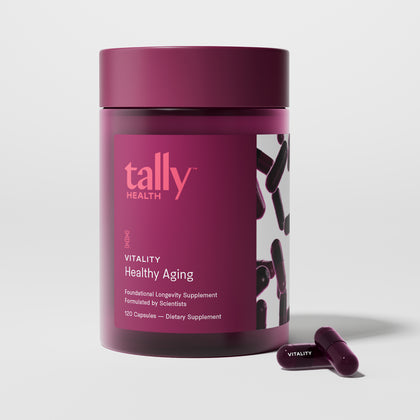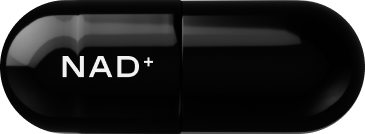

What if the secret to living longer and healthier wasn’t a pill, but a plate? The Mediterranean diet for longevity has earned its reputation as the gold standard of dietary patterns—backed by decades of scientific evidence, observational studies, randomized controlled trials, and real-world outcomes in some of the world’s longest-living populations.
More than just a diet, the Mediterranean style of eating is a way of life—rich in fruits and vegetables, whole grains, extra virgin olive oil, and plant-based foods, with only small amounts of processed foods and processed meats. This traditional Mediterranean diet has been linked to a decreased risk of cardiovascular disease, Alzheimer’s disease, cancer, and metabolic syndrome, while also supporting mental health, muscle mass, and healthy weight.
In other words: it’s a protective, anti-inflammatory dietary pattern that can help you live longer—and better.
Health Benefits of the Mediterranean Diet

The health benefits of the Mediterranean diet are some of the most well-documented in nutrition research. Greater adherence to this Mediterranean dietary pattern has consistently been shown to:
Reduce cardiovascular disease and mortality: Studies show people following the Mediterranean diet have a lower risk of coronary artery disease, cardiovascular events, and cardiovascular mortality.
Support healthy aging: Adherence to the Mediterranean diet is associated with longer life expectancy and lower all-cause mortality—a true “longevity diet.” It’s also linked to having a younger epigenetic age.
Protect brain health: Evidence links the diet to reduced cognitive decline and a lower risk of Alzheimer’s disease.
Stabilize metabolism: The diet improves insulin resistance and lowers the risk of metabolic syndrome, supporting blood pressure, body mass index, and overall cardiovascular health.
Improve mental health: Studies suggest adherence to this dietary pattern may reduce depression risk, boost resilience, and promote better mental health.
It’s no wonder that multiple Blue Zones—regions where people live especially long—follow a Mediterranean pattern of eating.
What’s on the Plate: The Mediterranean Diet Pattern

The Mediterranean dietary pattern isn’t about strict rules—it’s about consistent, high-quality food choices:
✅ Fruits and vegetables: Eat them daily, in high variety.
✅ Cereal grains and whole grains: Staples like oats, barley, and brown rice.
✅ Plant-based foods: Beans, lentils, nuts, and seeds.
✅ Extra virgin olive oil: The star fat, providing anti-inflammatory properties and cardiovascular protection.
✅ Fish and seafood: At least twice per week for omega-3s.
✅ Dairy products: In moderation, especially fermented varieties.
✅ Limited red and processed meats: Reduce processed foods for better heart health.
✅ Wine (optional): Traditionally consumed in moderation with meals.
This dietary pattern promotes a healthy weight, can improve public health outcomes, and helps protect against chronic diseases.
Mediterranean Diet vs. Other Diets

Unlike restrictive “quick-fix” diets, the Mediterranean diet is flexible, sustainable, and deeply rooted in countries bordering the Mediterranean Sea. Its balance of plant-based foods, healthy fats, and whole grains makes it more than a diet—it’s a lifestyle shift proven to improve health long-term.
That’s why nutrition experts have called it one of the best-studied and most effective diets for healthy aging.
How to Boost Longevity with More Than Diet

The Mediterranean diet is powerful on its own—but longevity doesn’t stop at food. Research shows dietary habits are only one piece of the healthy aging puzzle. Sleep, physical movement, stress reduction, and social connection all play essential roles in extending both life expectancy and quality of life.
That’s where the Tally Health membership comes in. Inspired by the Mediterranean diet and other evidence-based interventions, we provide personalized action plans that help you optimize sleep, movement, diet, stres, and social satisfaction—all critical pillars of longevity.
Action Steps to Get Started Today

Ready to eat your way toward a longer life? Start small with these Mediterranean-inspired shifts:
Swap butter for extra virgin olive oil in cooking.
Make fruits and vegetables the base of every meal.
Replace refined grains with whole grains like barley, oats, or brown rice.
Add legumes (lentils, beans, chickpeas) several times per week.
Limit processed foods and meats, choosing fish and poultry instead.
Pair these dietary habits with quality sleep, movement, and social connection for maximum impact.
The Bottom Line
The Mediterranean diet for longevity is more than a trend—it’s a scientifically validated dietary pattern that can reduce risk of chronic disease, protect your heart and brain, and help you live longer, healthier, and more vibrantly.
And while food is a cornerstone of health, true longevity comes from a holistic approach. With a Tally Health membership, you’ll get personalized guidance on diet, sleep, movement, and social well-being—giving you the tools to not only add years to your life but life to your years.
References
Guasch-Ferré and Willett. The Mediterranean diet and health: a comprehensive overview. J Intern Med 2021; https://doi.org/10.1111/joim.13333
Widmer et al.The Mediterranean diet, its components, and cardiovascular disease. Am J Med 2015; https://doi.org/10.1016/j.amjmed.2014.10.014
Dominguez et al.Mediterranean diet in the management and prevention of obesity. Exp Gerontol 2023; https://doi.org/10.1016/j.exger.2023.112121
Martínez-González et al. The Mediterranean Diet and Cardiovascular Health. Circ Res 2019; https://doi.org/10.1161/circresaha.118.313348
Gensous et al.One-year Mediterranean diet promotes epigenetic rejuvenation with country- and sex-specific effects: a pilot study from the NU-AGE project. Geroscience 2020; https://doi.org/10.1007/s11357-019-00149-0
What is the Mediterranean diet and why is it linked to longevity?
The Mediterranean diet is a way of eating rich in fruits and vegetables, whole grains, extra virgin olive oil, and plant-based foods, with limited processed foods and meats. It’s linked to longevity because it reduces the risk of cardiovascular disease, Alzheimer’s disease, cancer, and metabolic syndrome, while supporting healthy weight, muscle mass, and mental health.
What are the main health benefits of the Mediterranean diet?
Studies show the Mediterranean diet helps reduce cardiovascular disease and mortality, supports healthy aging and longer life expectancy, protects brain health, stabilizes metabolism, and improves mental health. It’s considered one of the most well-documented and effective diets for healthy aging.
What foods are included in the Mediterranean diet?
The Mediterranean diet emphasizes fruits, vegetables, whole grains, beans, lentils, nuts, seeds, fish, and extra virgin olive oil. It includes moderate amounts of dairy and minimal red or processed meats. Wine may be consumed in moderation with meals.











